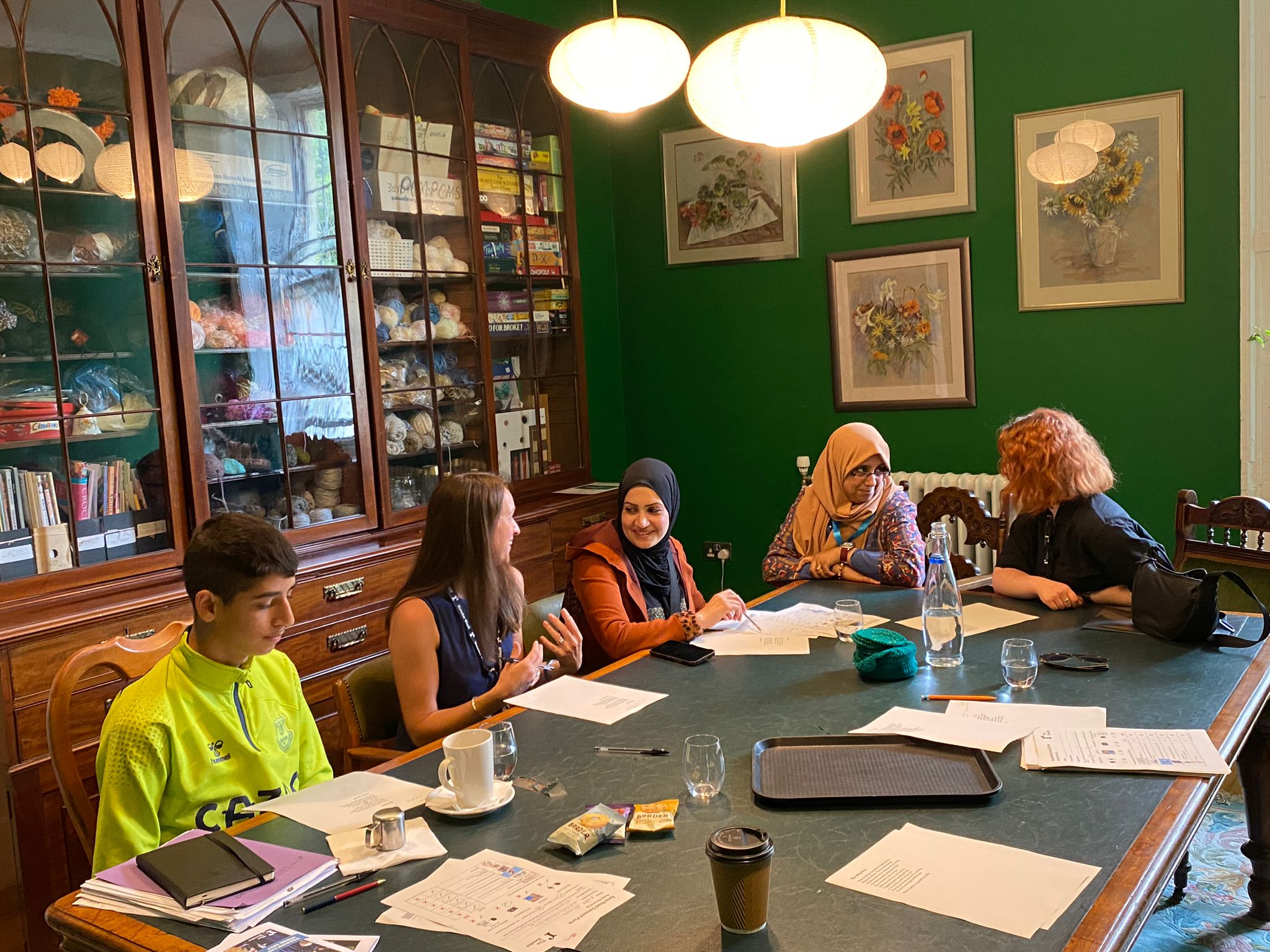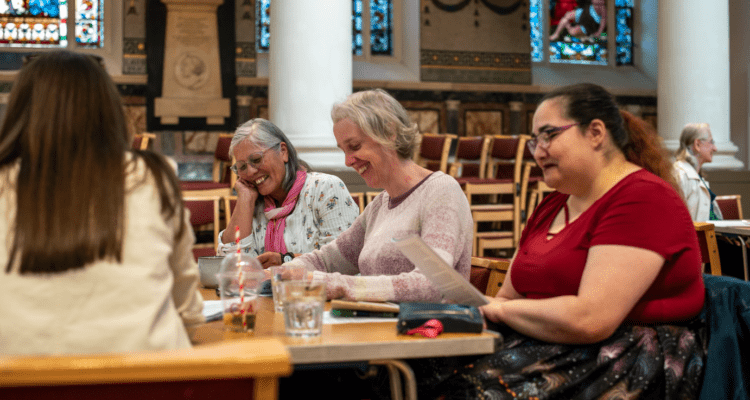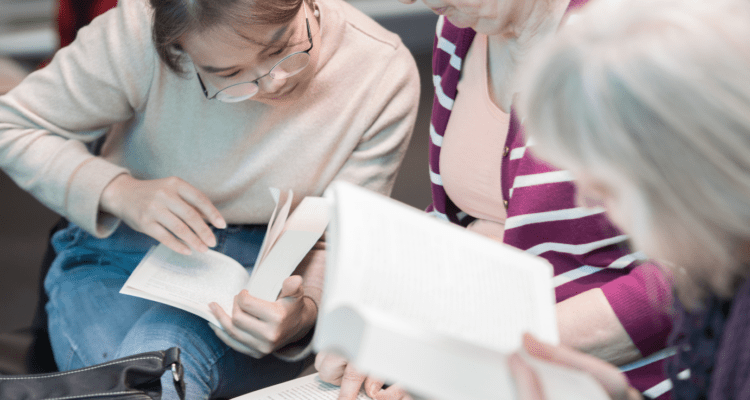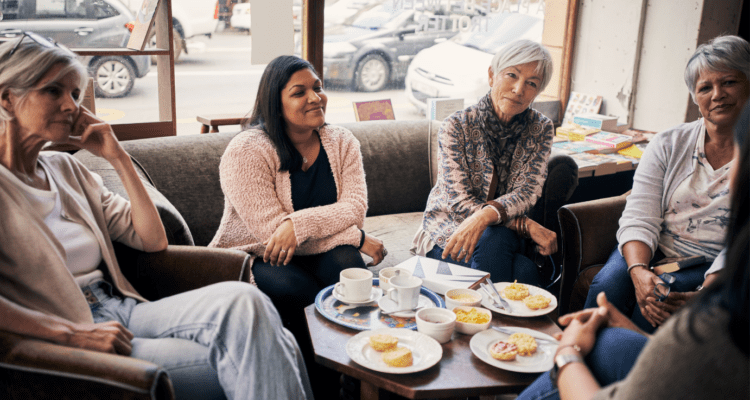Shared Reading as hope away from home this #RefugeeWeek
This Refugee Week we’re celebrating how arts and culture can help widen our circles of compassion by sharing a story from this Shared Reading group that meets every week in Liverpool’s Calderstones Park.

Our Liverpool is a city council initiative that supports vulnerable migrants, people seeking asylum and those with refugee status. The service includes the provision of stop-gap education for the children of families seeking asylum, which is hosted in The Reader’s home in Calderstones Park.
While the children spend the day in activities and classes in the Mansion House, their parents / young adult guardians often wait around for them for hours in the café or park before taking them home at the end of the day.
Seeing a need for greater connection with these families, who have very limited opportunities to integrate or interact with the local community, The Reader began offering a weekly Shared Reading session for parents earlier this year.
The aim was that through the conversations sparked by literature and reading aloud together, the group would build a sense of connection and a shared understanding of the different experiences and perspectives in the room.
From a practical perspective, the group would also help participants to develop their conversational English. While a Shared Reading group is not an English lesson, the sessions provide a space where individuals can hone their skills through literature and create a welcome sense of community and celebration for those in transient and uncertain situations.
At any one time the group will be made up of a rich and diverse mix of languages – Albanian, Arabic, Kurdish, Urdu, Persian, Greek, Spanish and more. But through the literature – and especially poetry – the group is able to transcend language barriers to arrive at a shared understanding and universal emotions.
Katie Clark, The Reader’s Director of Literature, leads the group and captured this moment recently: “As it was a quieter session in terms of numbers, we had plenty of time to talk and made use of Google Translate which two group members used to translate the poem and communicate.
“At one point, one group member typed a message to me which said ‘I have been unable to speak for 8 months. Whenever I try I feel ashamed because my English isn’t good.’
“I felt incredibly sad reading this and responded ‘That must be very hard. I’m sorry it is difficult. I wish I could speak to you in Kurdish. Your English is much better than my Kurdish. I don’t think you should be ashamed. I think you are very brave.’
“She read the message and smiled and said thank you. She then bowed her head and cried. I rubbed her arm and gave her a moment. I checked in with her, allowing her to make eye contact when she was ready. I asked if she was ok and if she wanted anything, or to have a moment. She said she was OK and wanted to carry on, so we re-read the poem, Let Evening Come.”
Let it come, as it will, and don’t
be afraid. God does not leave us
comfortless, so let evening come.
From ‘Let Evening Come’ by Jane Kenyon
Reflecting on this interaction, Katie says: “I was glad that this group member felt able to share this in the group, and very struck by the sense of ‘shame’ that she – and the others – might feel when speaking English.
“It also brought home to me how much of a lifeline Shared Reading could become for the group if we can make it a space where that sense of shame doesn’t exist.
“If we tap into the core practice of slow reading, repeating words and lines, breaking things down and giving time to them, applying no pressure to be right or wrong and focusing on feeling as well as meaning, then there’s no reason why we can’t get to a place where everyone in the group feels confident enough to share a personal response to what we’re reading.”
Indeed, this is already happening in groups that have been reading with displaced people and migrants for a longer period of time, such as this one in Skelmersdale. And there are other groups too – in Bristol, Birmingham and London, and a new group to start in Doncaster. Volunteer, Holly, told us that her group read ‘Poem for Today’ by Kathleen Jamie and had ‘a very moving conversation. We were able to use the poem to talk about the migrant crisis, the borders and the obstacles that are put up around our country.’
If you’d like to know more about Shared Reading groups that support people seeking asylum contact support@thereader.org.uk or if you’re from an organisation that would like to work with us to support refugees and people seeking asylum, contact partnerships@thereader.org.uk – we’d love to hear from you.
Share
Related Articles

New funding from The National Lottery Community Fund to support the expansion of Shared Reading across mental health settings
We're delighted to have been awarded £120,000 by The National Lottery Community Fund to support work over the next three…

Celebrating libraries as a space for Shared Reading and connection this #LibrariesWeek
For Libraries Week 2023, Geetha Rabindrakumar, our Director of Partnerships, Communities and Impact shares how our work in libraries supports…

Community based solutions are needed to support the NHS to deal with mental health crisis
Geetha Rabindrakumar, our Director of Partnerships, Communities and Impact reflects on our research on reading habits and mental health and…


